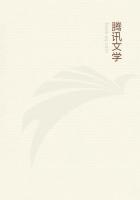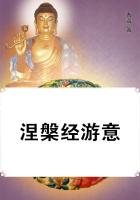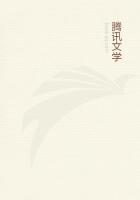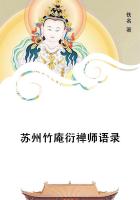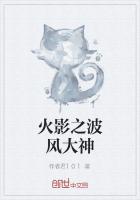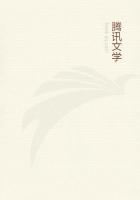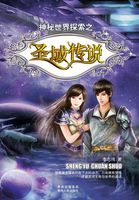Can there be any doubt that good birth, and power, and honours in one's own land, are goods?
He assented.
And what other goods are there? I said. What do you say of temperance, justice, courage: do you not verily and indeed think, Cleinias, that we shall be more right in ranking them as goods than in not ranking them as goods? For a dispute might possibly arise about this. What then do you say?
They are goods, said Cleinias.
Very well, I said; and where in the company shall we find a place for wisdom--among the goods or not?
Among the goods.
And now, I said, think whether we have left out any considerable goods.
I do not think that we have, said Cleinias.
Upon recollection, I said, indeed I am afraid that we have left out the greatest of them all.
What is that? he asked.
Fortune, Cleinias, I replied; which all, even the most foolish, admit to be the greatest of goods.
True, he said.
On second thoughts, I added, how narrowly, O son of Axiochus, have you and I escaped making a laughing-stock of ourselves to the strangers.
Why do you say so?
Why, because we have already spoken of good-fortune, and are but repeating ourselves.
What do you mean?
I mean that there is something ridiculous in again putting forward good-fortune, which has a place in the list already, and saying the same thing twice over.
He asked what was the meaning of this, and I replied: Surely wisdom is good-fortune; even a child may know that.
The simple-minded youth was amazed; and, observing his surprise, I said to him: Do you not know, Cleinias, that flute-players are most fortunate and successful in performing on the flute?
He assented.
And are not the scribes most fortunate in writing and reading letters?
Certainly.
Amid the dangers of the sea, again, are any more fortunate on the whole than wise pilots?
None, certainly.
And if you were engaged in war, in whose company would you rather take the risk--in company with a wise general, or with a foolish one?
With a wise one.
And if you were ill, whom would you rather have as a companion in a dangerous illness--a wise physician, or an ignorant one?
A wise one.
You think, I said, that to act with a wise man is more fortunate than to act with an ignorant one?
He assented.
Then wisdom always makes men fortunate: for by wisdom no man would ever err, and therefore he must act rightly and succeed, or his wisdom would be wisdom no longer.
We contrived at last, somehow or other, to agree in a general conclusion, that he who had wisdom had no need of fortune. I then recalled to his mind the previous state of the question. You remember, I said, our making the admission that we should be happy and fortunate if many good things were present with us?
He assented.
And should we be happy by reason of the presence of good things, if they profited us not, or if they profited us?
If they profited us, he said.
And would they profit us, if we only had them and did not use them? For example, if we had a great deal of food and did not eat, or a great deal of drink and did not drink, should we be profited?
Certainly not, he said.
Or would an artisan, who had all the implements necessary for his work, and did not use them, be any the better for the possession of them? For example, would a carpenter be any the better for having all his tools and plenty of wood, if he never worked?
Certainly not, he said.
And if a person had wealth and all the goods of which we were just now speaking, and did not use them, would he be happy because he possessed them?
No indeed, Socrates.
Then, I said, a man who would be happy must not only have the good things, but he must also use them; there is no advantage in merely having them?
True.
Well, Cleinias, but if you have the use as well as the possession of good things, is that sufficient to confer happiness?
Yes, in my opinion.
And may a person use them either rightly or wrongly?
He must use them rightly.
That is quite true, I said. And the wrong use of a thing is far worse than the non-use; for the one is an evil, and the other is neither a good nor an evil. You admit that?
He assented.
Now in the working and use of wood, is not that which gives the right use simply the knowledge of the carpenter?
Nothing else, he said.
And surely, in the manufacture of vessels, knowledge is that which gives the right way of making them?
He agreed.
And in the use of the goods of which we spoke at first--wealth and health and beauty, is not knowledge that which directs us to the right use of them, and regulates our practice about them?
He assented.
Then in every possession and every use of a thing, knowledge is that which gives a man not only good-fortune but success?
He again assented.
And tell me, I said, O tell me, what do possessions profit a man, if he have neither good sense nor wisdom? Would a man be better off, having and doing many things without wisdom, or a few things with wisdom? Look at the matter thus: If he did fewer things would he not make fewer mistakes? if he made fewer mistakes would he not have fewer misfortunes? and if he had fewer misfortunes would he not be less miserable?
Certainly, he said.
And who would do least--a poor man or a rich man?
A poor man.
A weak man or a strong man?
A weak man.
A noble man or a mean man?
A mean man.
And a coward would do less than a courageous and temperate man?
Yes.
And an indolent man less than an active man?
He assented.
And a slow man less than a quick; and one who had dull perceptions of seeing and hearing less than one who had keen ones?
All this was mutually allowed by us.
Then, I said, Cleinias, the sum of the matter appears to be that the goods of which we spoke before are not to be regarded as goods in themselves, but the degree of good and evil in them depends on whether they are or are not under the guidance of knowledge: under the guidance of ignorance, they are greater evils than their opposites, inasmuch as they are more able to minister to the evil principle which rules them; and when under the guidance of wisdom and prudence, they are greater goods: but in themselves they are nothing?
That, he replied, is obvious.

